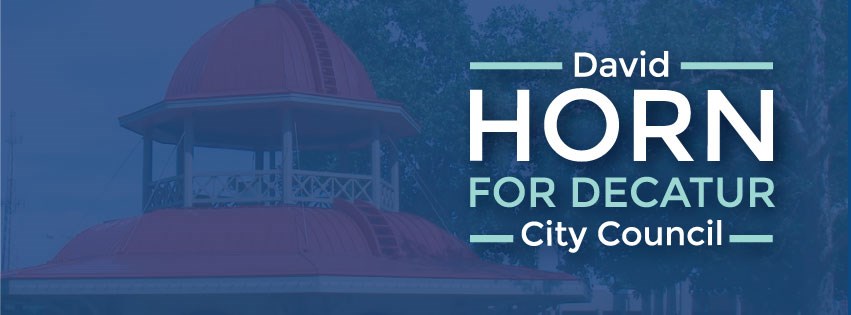
Financial assistance available to replace private water service lines that have lead
At its last meeting, the city council learned more in-depth about the large number of Decatur properties, particularly properties in or near our urban core, that have water service lines that may need to be addressed for lead or lead exposure. Generally, the impacted lines were installed prior to 1940. The city is offering residents at impacted properties a cost share of 50% up to a maximum of $3,000 to replace pipes that go from the curb box of the property line to where the water enters the residence.
It is important to note that the presence of lead in the pipes does not necessarily mean that there is lead in the drinking water. The treatment of the city’s drinking water includes the application of calcium which prevents release of lead from pipes. Furthermore, the city is required to test for the presence of lead in its water and is in long-standing compliance with the required standards.
As background, the city has 29,368 water services that connect water mains of the city to its users. In 2021, the city conducted a water service line inventory and based on historical records identified up to “6,305 water services that need to be addressed for lead and lead exposure” (21% of all water services). Residents interested in knowing whether their property needs to be addressed for lead and lead exposure can contact the city’s municipal service center at 217-875-5705.
The estimated cost to replace pipes on the private side of a residential service line is $2,000-$5,000. Given that there may be as many as 6,305 water services that need to be addressed, and the 50% cost share up to $3,000 the city is offering, an estimated cost to the city for the private side of all residential properties combined would be $6.3 - $15.8 million.
There is ~$25.6 million in the 2023 budget that could be allocated to lead remediation and other neighborhood revitalization initiatives that can be performed in conjunction with remediation such as our Great Streets / Great Neighborhoods initiative. Below are three major sources of funds that the city council could use.
1) Reallocate remaining American Rescue Plan (ARP) funds – The 2023 budget proposes spending $4.7 million in ARP funds for the clarifiers project at the water treatment plant and $3.7 million to the Ellen/Division sewer project. The $8.4 million in water projects could be paid for by bond proceeds the city received in 2022.
2) Adopt a 60-day cash reserve and use the surplus $12.3 million - In 2022, Moody’s provided an update to Decatur’s credit and one of its strengths was the city’s healthy reserves. The report was issued when the cash reserve was $17.5 million. Cash reserves were $25.1 million by the end of the 2022 (a cash reserve of 117 days).
3) Have the public works department advocate for more innovative, less expensive solutions to infrastructure challenges. As it pertains to the Oakland and Grand sewer separation project, city staff selected an option that was $4.9 million more expensive than another viable option. Ironically, the less expensive option for the separation project would have created more greenspace and possibly recreational opportunities in a blighted area.
